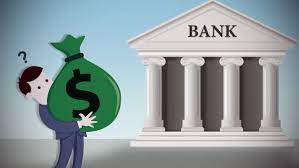The recent downgrade of the United States’ credit rating by Fitch Ratings has ignited a contentious debate, as it appears to be fueling the very fiscal fight the credit agency warned against. Fitch downgraded the US from its top-notch AAA rating to AA+ due to concerns over the country’s mounting debt and political gridlock in addressing fiscal challenges.
The downgrade comes at a time when the US economy is grappling with a series of fiscal issues, including rising inflation, increasing public debt, and debates over the debt ceiling. Fitch’s decision to lower the credit rating signals its concern over the country’s ability to address these challenges effectively.
While credit rating downgrades are not uncommon, Fitch’s move has added an extra layer of complexity to the ongoing fiscal debates in Congress. The downgrade is likely to amplify partisan disagreements, with both political parties using it to support their respective arguments on economic policies.
Fitch’s report accompanying the downgrade emphasized the urgency of addressing fiscal imbalances and urged policymakers to find common ground. However, the rating downgrade appears to be exacerbating the political divisions rather than spurring cooperative efforts to resolve the issues at hand.
Critics argue that Fitch’s downgrade could undermine confidence in the US economy and trigger further instability in financial markets. They contend that such actions by credit rating agencies can exacerbate economic challenges, making it more difficult for the government to address long-term fiscal issues.
On the other hand, some proponents of fiscal restraint argue that the downgrade serves as a wake-up call for policymakers to take immediate action to address the mounting debt and enact responsible fiscal policies. They believe that the downgrade could serve as a catalyst for constructive dialogue and fiscal prudence in the long term.
The downgrade has also drawn attention to the role and influence of credit rating agencies in shaping economic policies. Critics question the credibility and impartiality of these agencies, suggesting that their actions could have significant implications on financial markets and policy decisions.
As policymakers and economists grapple with the implications of the downgrade, it remains to be seen how the US government will respond. The downgrade may intensify discussions over spending cuts, tax reforms, and measures to address the country’s fiscal challenges.
In conclusion, Fitch’s downgrade of the US credit rating is stirring a contentious debate, potentially fueling the very fiscal fight it sought to warn against. As the country faces mounting economic challenges, the downgrade’s impact on political discourse and policy decisions will be closely watched by both domestic and international stakeholders. It remains essential for policymakers to engage in constructive dialogue and work towards finding solutions that can address the country’s fiscal imbalances and ensure economic stability in the long term.




